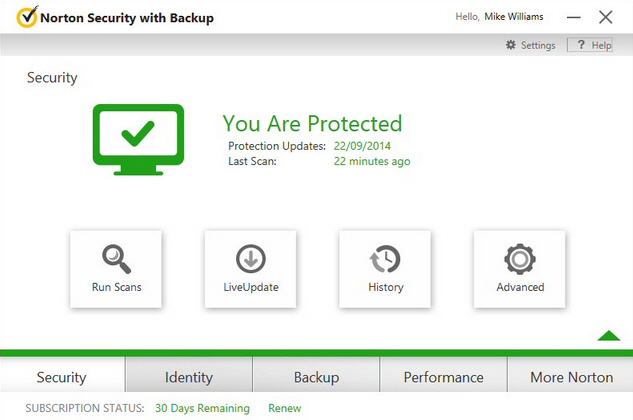
Having said that, I have been on a film set for the last 15 years and I know what I like, I know what stories I want to tell and how I want to tell them and so there is quietly a director chomping at the bit ready to get behind the camera. And again, just setting the tone of our company, I don’t think it would have been right – we know it wouldn’t have been right – for me to take our first project out the gate as a company and for me to direct it having not directed before. Knowing all the characters and all the decisions, and then having people pitch to us who were then going to take creative control, knowing in my head quietly how I would have directed it. I mean, it was an interesting experience knowing so much about this, and having such a creative hold on not just the role, but the whole story. Which leads me to ask – is directing something you’ve considered moving into? It’s a whole other skill set, a whole other type of creative nourishment, being able to read a book and try and see it in a cinematic sense and try and have a vision for something and then who might direct it and who might write this. I have learned that I love sitting at a desk and reading scripts and editing scripts and noting scripts. And also partly because it’s just more interesting. Partly because our slate is really healthy and it’s growing at an extraordinary rate considering our age and our size. 20% I’m involved with as an actor and 80% I’m not. And actually, it’s turned out much more almost 80/20. Initially we talked about having 50% which I would be in – and not necessarily even front but be in in some capacity – and then 50% that I’m not in.

With the projects you’re working on at Rabbit Track, what will the balance be in terms of those you feature in versus those you don’t? I guess I’m just drawn to people who are puzzles and inherently complicated because that makes my job so exciting. And so I just find it inherently interesting. And as an actor, you have this wonderful opportunity to delve into these very complicated minds, which are so different from yours and try and work out the puzzle and work out the big “why” questions: why does a human being ended up that far removed from everyone else? Why are they able to manipulate their own moral compass to such an extent to justify these horrific acts? And I think we’re all, as human beings, we all have our Jungian shadow, we all wonder whether we’re capable of manipulating one’s moral compass. The characters which I think I’m drawn to are often the characters which are furthest away from myself. I don’t search specifically for the villain. Your characters in “Happy Valley” and “McMafia” are also fairly villainous. So other than that, I think he’s possibly still out there.
F SECURE VS NORTON MOVIE
A more recent victim reached out and wanted to help us make the movie because that felt like a way holding him to account. We know where he is through – we think we know where he is. But no, we haven’t had any direct contact with him, and I don’t think we would really want to either. How bizarre.” So those were quite chilling. So there were a number of moments where a couple of producers put the phone down “I think I might have just been speaking to Robert Freegard. And the question remains, if you are a narcissist or the kind of manipulator and control freak that Freegard clearly is, and you hear in the trades that a movie is being made out of you, well, what do you do? I’m sure you try and ingratiate yourself with that movie. We did have some people call up, reach out to the production team, make some slightly dubious claims.

We didn’t intentionally speak to Robert Freegard. The big question is whether we spoke to Freegard. We wanted to be respectful of their shared trauma and how horrible this experience had been for them and we didn’t want masses of actors and producers and filmmakers all turning up on their doorstep. What kind of research did you do for this film? Did you speak to Robert Freegard or his victims? last month), Norton sat down with Variety to discuss producing, directing and the mysterious phone calls he thinks came from Freedgard himself. With “Rogue Agent” getting a theatrical release in the U.S. “It’s this story no one has ever heard before, and no one can quite believe is real. “It’s clear why it’s so compelling,” Norton says of his desire to bring the article to the screen.

He brought on former Black Bear Pictures exec Kitty Kaletsky and together they formed the London-based Rabbit Track Pictures to make the feature, which also stars Gemma Arterton (“Prince of Persia: The Sands of Time”) as a victim of Freegard’s who ultimately brings him down. “I read it, devoured it, loved it,” says Norton who soon decided he wanted to produce the film himself. It was a role, Norton says, he knew he wanted to play as soon as he read the deeply researched but never published article by journalist and producer Michael Bronner (“The Mauritanian”).


 0 kommentar(er)
0 kommentar(er)
